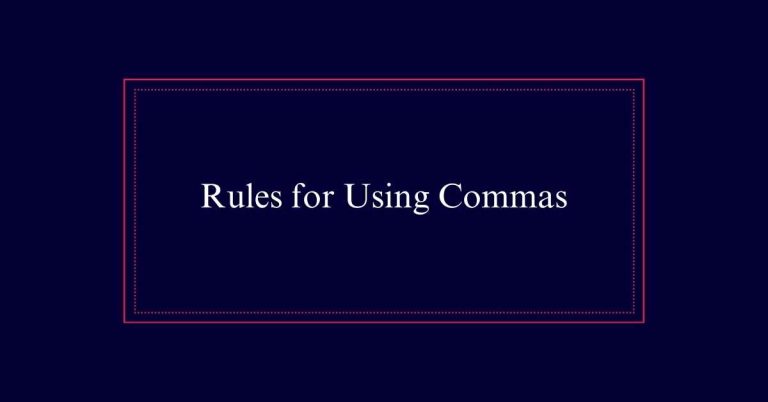Apologise or apologize?
The choice between ‘apologise’ and ‘apologize’ depends on your audience. ‘Apologize’ is the preferred spelling in American English, aligning with the common use of the suffix -ize. Conversely, ‘apologise’ is used in British English, reflecting traditional spelling preferences. Both forms are correct, but consistency in your writing is essential.
Definition of Suffixes
Suffixes are word endings that modify the meaning or function of the root word. They can change a word’s grammatical role, tense, or form a new word. For example, adding the suffix ‘-er’ to ‘teach’ creates ‘teacher,’ indicating a person who teaches.
Suffixes also help in forming adjectives, adverbs, and verbs. By attaching ‘-ly’ to ‘quick,’ we get ‘quickly,’ transforming an adjective into an adverb. Additionally, suffixes can denote action or process, as seen with ‘-tion’ in ‘creation.’
Understanding suffixes aids in vocabulary expansion and language comprehension. They are essential in mastering spelling and grammar, providing clarity and precision in communication. Recognizing suffix patterns is important for effective writing and reading.
Meaning of -ize Suffix
The suffix -ize typically means to cause something to become or to be treated in a specific way. It is often used to form verbs that indicate a transformation or a process.
For instance, ‘modernize’ means to make something modern. Similarly, ‘organize’ means to arrange or structure something systematically. The suffix can also imply treating something in a certain way, such as ‘hospitalize,’ which means to admit someone to a hospital for treatment.
This suffix is prevalent in American English, where it is used consistently to denote these actions or processes. Understanding the function of -ize helps in grasping the meanings of many verbs, facilitating clearer communication and more precise expression in writing.
Meaning of -ise Suffix
In British English, the suffix -ise often serves the same purpose as the American -ize, indicating a transformation or process. Both suffixes imply an action or change.
For example, to ‘realise’ something means to become aware of it, just as ‘realize’ does in American English. This suffix is versatile and frequently used in various contexts to signify different kinds of changes or actions.
Here are some key points to take into account:
- Both -ise and -ize indicate an action or process.
- They are interchangeable in meaning.
- British English prefers -ise, while American English uses -ize.
- Examples include ‘organise’ vs. ‘organize.’
- The choice of spelling depends on regional preferences.
Regional Spelling Variations
Why do regional spelling variations exist between British and American English? These differences stem from historical, cultural, and linguistic evolutions. When the United States gained independence, there was a conscious effort to develop a distinct American identity, including in language. Over time, spelling conventions diverged.
Consider the following table:
| British English | American English | Emotion Evoked |
|---|---|---|
| Apologise | Apologize | Confusion |
| Colour | Color | Nostalgia |
| Centre | Center | Curiosity |
| Honour | Honor | Pride |
These variations can evoke emotions tied to identity and tradition. Understanding these differences promotes effective communication and shows respect for regional preferences. It’s essential for writers to adapt their spelling to suit their audience.
American English Spelling
American English spelling often simplifies words compared to British English, reflecting historical shifts and the influence of lexicographers like Noah Webster.
This simplification is evident in various aspects of language.
- -ize vs. -ise: American English prefers -ize (e.g., ‘apologize’).
- Omission of ‘u’: Words like ‘color’ and ‘honor’ drop the ‘u’ found in British English.
- Simplified endings: ‘Traveler’ in American English versus ‘traveller’ in British English.
- Use of ‘z’: Words like ‘analyze’ use ‘z’ instead of British English’s ‘s’ (e.g., ‘analyse’).
- Dropped ‘e’: American English often drops the ‘e’ in words like ‘aging,’ while British English retains it as ‘ageing.’

British English Spelling
British English spelling retains many traditional forms and conventions that differ from American English. For example, where American English uses the suffix -ize, British English often opts for -ise. This reflects a preference for historical spellings and influences from French. To illustrate, consider the following common differences:
| British English | American English |
|---|---|
| Apologise | Apologize |
| Organise | Organize |
| Realise | Realize |
| Recognise | Recognize |
| Analyse | Analyze |
These variations are not just limited to suffixes. Other differences include colour vs. color and theatre vs. theater. Understanding these distinctions is important for writing accurately for your audience, ensuring your work aligns with their regional norms.
Examples in Literature
In literature, the choice between ‘apologize’ and ‘apologise’ often reflects the author’s regional background. British authors typically use ‘apologise,’ while American writers prefer ‘apologize.’ These variations can help readers identify the origin of the text and understand the cultural context. The difference in spelling is a subtle but telling detail.
Here are some notable examples:
- Jane Austen: In her British novels, you will find ‘apologise.’
- Mark Twain: His American works consistently use ‘apologize.’
- Charles Dickens: As a British author, he uses ‘apologise.’
- Ernest Hemingway: American literature by Hemingway includes ‘apologize.’
- J.K. Rowling: Her Harry Potter series, written in British English, uses ‘apologise.’
Tailoring to Audience
Understanding your audience’s regional spelling preferences is crucial for effective communication. Knowing whether your readers are primarily from the United States or the United Kingdom can guide your choice between ‘apologize’ and ‘apologise.’ This guarantees your writing resonates well with your audience and maintains credibility.
For American readers, using ‘apologize’ aligns with their expectations and standard usage. Conversely, for British readers, ‘apologise’ feels more familiar and appropriate. Tailoring your language to your audience demonstrates attentiveness and respect for their norms. It minimizes distractions and potential misunderstandings.
Common Spelling Differences
Many spelling differences exist between American and British English. These variations can be seen in commonly used words, creating distinct preferences in each region. Despite these differences, the meanings remain the same.
Here are some notable examples:
Frequently Asked Questions
Why Does the UK Use -Ise Instead of -Ize?
The UK uses -ise instead of -ize largely due to historical and traditional spelling practices. British English tends to prefer French-influenced spellings, while American English often adopts simplified, phonetic versions.
Is One Spelling More Formal Than the Other?
Neither spelling is more formal than the other. The choice between them depends on regional preferences. Apologize is used in American English, while apologise is preferred in British English. Both are correct and convey the same meaning.
Do Canadian Writers Prefer Apologise or Apologize?
Canadian writers generally prefer “apologize,” aligning more with American English conventions. However, Canadian English sometimes incorporates British spellings. The choice may vary depending on the writer’s preference or the publication’s style guide.
Are There Contexts Where One Spelling Is Mandatory?
Contexts where one spelling is mandatory include formal documents, academic writing, and publications. Use ‘apologize’ in American English contexts and ‘apologise’ in British English settings to meet regional standards and maintain professionalism.






